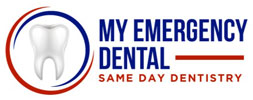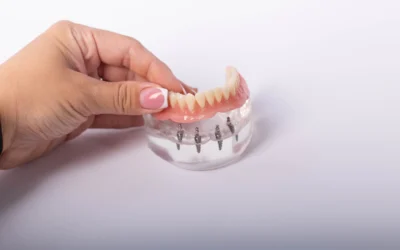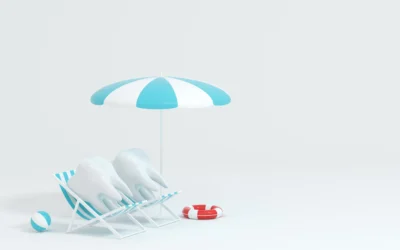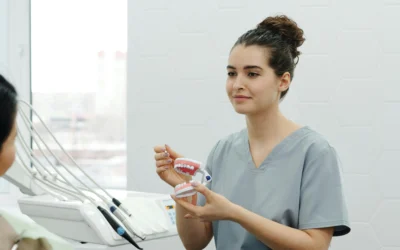Accidents happen. Your kid takes a header while skateboarding, you take a wiffle bat to the face while holding a pinata, or you get into a fender bender and hit your jaw against the steering wheel. By their very nature, accidents are unexpected and sometimes traumatic. With a bit of prep work, however, you can minimize the damage and stress caused by dental emergencies.
Know Your Dentist’s Availability
If your dentist doesn’t operate outside of regular business hours, they’ll likely have a number to call in emergencies. If they refer patients to another office for emergency dentistry services, have that number and your insurance card in your wallet.
Decide if Home Treatment is an Option
Some issues can be dealt with at home, at least initially. Here are a few examples:
- Toothache Due to Food- Try flossing. Sometimes a sore tooth indicates that food is caught between teeth or under the gum line. Flossing well for a few days may clear up the toothache without an office visit. Remember, if it requires sharp instruments to remove the object, going to the dentist is the better option.
- Toothache Due to Exposed Nerves- You can get immediate relief using Orajel or clove oil while you wait for an appointment. If the nerve is exposed, you can use sugar-free gum or dental wax to cover it.
- Laceration in the Mouth- Most cuts are minor and heal quickly. If you bite the inside of your cheek, get cut by a rough edge on your braces, or get hit in the mouth by a toddler throwing their head back in a tantrum, the treatment is the same. Swish with warm salt water. Use a cold compress. If the bleeding refuses to stop, seek medical attention. You might need stitches.
When To Call Your Dentist
Some emergencies require a dentist, including:
- Pain That Doesn’t Go Away- If your pain doesn’t resolve with over the counter remedies, you may need an expert opinion. They can review your mouth care routines and discover if another toothpaste, a different kind of toothbrush, or other habits might fix the problem. They will also be able to check for more troubling issues, like a crack in the tooth exposing a nerve, gum disease, or cavities.
- Toothache Due to Swelling- Swelling can cause extreme discomfort. Using ice packs can lessen the swelling so you can find and/or deal with the root cause of the pain. However, you must go to the dentist when you experience swelling, which is an emergency that must be treated without delay.
- Prolonged Bleeding- As we mentioned before, if bleeding doesn’t stop or keeps happening, a dentist can discover the underlying cause.
- A Broken Tooth- A chip or break from trauma to the face can be repaired. Not only does it keep your smile bright and healthy, it prevents further damage. Depending on the type of break, they may use crowns, veneers, root canals, or fillings. If the break did not happen because of trauma, a dentist might look at bone density in your jaw. Some medications weaken the bone, so it’s always good to check.
- Losing a Tooth- If you play sports, getting into an accident, or even getting into a fight is a real possibility. The force needed to knock a tooth loose is significant. A dental exam is a good idea, just to ensure there isn’t any additional damage.
Note: If you carefully pick up the tooth, rinse it, and put it in a cup of milk. The dentist might even be able to put it back in. Saving a tooth requires quick action, though. Get to urgent dental care ASAP before the living tissue dies. - TMJ- People who grind their teeth and clench their jaw may experience popping or pain at the jaw attachment when chewing. It can affect mobility, even to the point of locking the patient’s jaw in place so they can’t open their mouth.
Stress management is a great DIY tool for treating mild TMJ. If symptoms persist or worsen, your dentist can relax the muscles holding your jaw in place and prescribe treatment such as wearing a bite guard at night, physical therapy, and medication.
Planning For The Future
Because it’s impossible to know when the next emergency might strike, preparing now is advisable. You can save money for the inevitable copays, make sure emergency numbers are written down, ensure your whole family knows where to find them, and create or add to your home first aid kit.
In addition to the normal first aid supplies, you may consider the following additions:
- Orajel or clove oil for topical pain relief
- Oral pain medication
- A chemical ice pack that can be activated on site if you don’t have an ice maker or ice trays handy. It will slow bleeding, ease pain, and bring swelling down.
- Gloves, preferably latex free, in case someone is allergic. Even if your family is allergy free, your guests may react.
- Salt for mouth rinses
- Toothbrush, paste, and dental floss
- A small container to put a live tooth in milk for transport.
- Sugar-free gum or other temporary dental fillers to get you to your appointment.
- Dental wax
The only thing you can guarantee about life is it is unpredictable. Accidents happen, but with planning, you don’t have to worry. You know you’ll have the tools and knowledge to handle small emergencies at home and know when to seek an emergency dentist for help.



